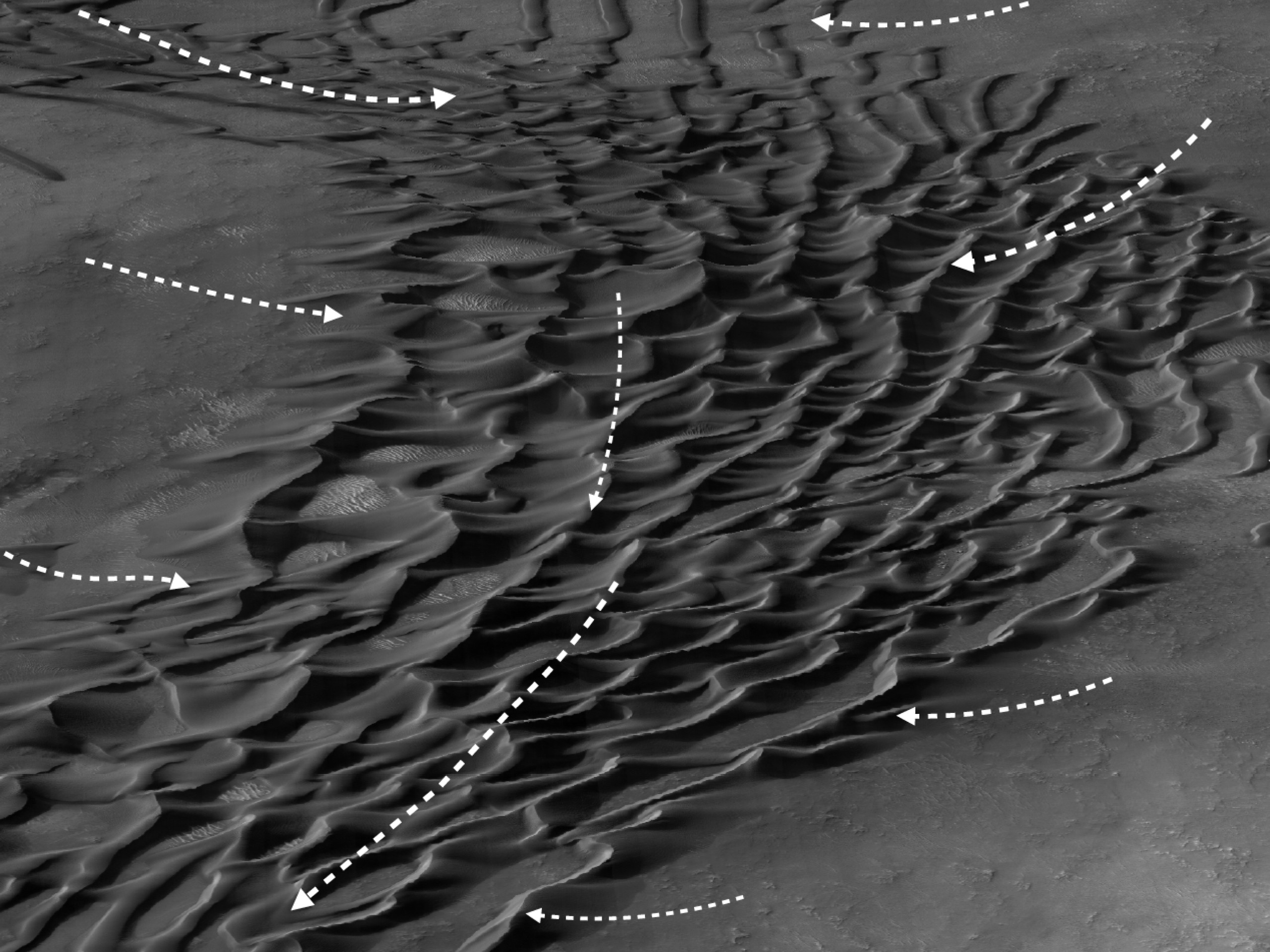Sand dunes on Mars are subject to variety of wind regimes and impacting conditions that have produced a diverse catalog of dune shapes and sizes. Simple wind regimes, where atmospheric flow is directed in one direction, typically lead to the formation of crescentic dunes called barchans. These simple dunes are common in craters across the Southern Highlands. For example,
see this observation where a fleet of barchans are migrating to the left (west).
This region also hosts remarkably complex dunes
like this field in the Hellespontus Montes mountain range. Dunes here migrate both
east and
west, coalescing and eventually converging at a central area where star dunes are found. Diurnal and seasonal shifting winds are responsible for the dune’s formation and activity.
Ultimately, it is the outsized influence of the
giant Hellas Planitia basin, which is directly to the east, that controls most of the regional atmospheric flow. (See also:
Multidirectional Dune Dynamics Under Seasonal Winds on Mars).
ID:
ESP_016339_1380date: 20 January 2010
altitude: 255 km
https://uahirise.org/hipod/ESP_016339_1380
NASA/JPL-Caltech/University of Arizona
#Mars #science #NASA
